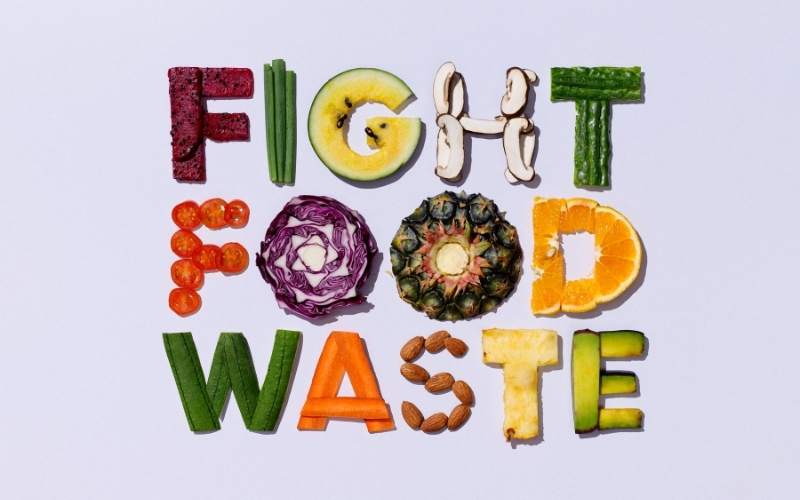Food waste is the meal left that is uneaten or unused. The causes of food wastage are different from production to distribution and consumption. One-third of the world’s food is thrown away.
Causes of Food Waste in Restaurants

- Spoilage
Food may become unfit for consumption due to improper handling, storage, or packaging. Food spoilage is caused by the growth of microorganisms that produce enzymes that lead to objectionable byproducts in food. Poor storage management and improper refrigeration led to the food expiry date and ended as waste.
- Customers leftover
At the end of the meal, the surplus food remaining unconsumed is the customer’s leftovers. They may lead to waste. About 30 % of the UK’s waste comes from customer leftovers.
- Overproduction
Many kitchens prefer over-prepared to under-prepare, and manually planning orders can lead to a miscalculation between what is needed and what ends up wasted. Especially, over-production of decomposable items may lead to waste.
- Food spillage
Food spillages are pretty common in restaurants. It may include a server dropping a food tray as they walk from the dining room to a prep cook accidentally knocking over their cutting board.
Why Do We Need to Reduce Food Waste in Restaurants?
Food waste is a big problem in our society. Every year 2.8 million tons of food is wasted by restaurants in the UK.
The amount of carbon produced by food waste in the UK is equivalent to that emitted by one-fifth of the country’s road vehicles. Food waste does not just affect the environment but also affects the profit margin.
Apart from the location and size of the restaurant, by managing food waste, you will achieve good profit and help the environment.
One of the biggest problems with restaurant food waste is that it can be challenging to track. Surplus food is often thrown away without being recorded, so it is hard to determine the amount of waste produced. However, by monitoring food waste and implementing simple solutions, restaurants can significantly reduce waste.
How to Reduce Food Wastage in Restaurants?

Foodservice distributors have a lot of experience dealing with food waste and can provide restaurants with valuable tips and advice on reducing it. Here are just a few pieces of the information that they can offer:
- Store food correctly
If restaurants store food correctly, they may avoid food wastage. Ensure that the refrigerator and freezer are running at the right temperature. Low-risk foods are stored on higher shelves than high-risk foods may help in avoiding food wastage.
Proper food storage helps maintain the quality and nutritional value of the foods you buy and enables you to get the most for your food bill by preventing spoilage. Also, food storage can help prevent foodborne illnesses caused by harmful bacteria.
- Train staff
Make sure your staff understands the importance of reducing food waste and how they can help to achieve this goal. Educate the team on proper food handling and storage techniques and how to identify spoiled food.
It is essential for everyone working in a kitchen to get basic food safety and storage training. The trained staff play a vital role in avoiding food waste.
The staff is trained in how to manage food, store food, cook food and avoid wastage. Foodservice distributors have the knowledge and resources to help restaurants reduce their food waste. They train staff members in proper food handling techniques
- Label food correctly
Labeling food correctly will help you to be aware of what is in the container. And the labeling of the expiration date will help in reducing the possibility of throwing food in error.
Food labels should also list ingredients with the most common allergens clearly emphasized, so they are separated from other ingredients. Storage instructions should be labeled to ensure food remains safe to eat.
- Inventory management
Keep tracking the ingredients coming in and out of the restaurant. Inventory management may help keep the right amount of food and ingredients on hand so they have enough stock to serve all customers and avoid spoilage and damage.
Restaurants are more likely to have long-term success if they practice effective inventory management.
- Offer the Takeout option
Offer customers to take their leftovers to their homes. If something is still left on the plates despite adjusted portion sizes, you can offer your customer to take the leftovers with them in a bag. It will save money when it comes to disposal, and guests can enjoy a meal later at home.
- Customize the menu
One way is to plan menus carefully, making sure that ingredients are used in the right quantities. Restaurants can also make use of leftovers, turning them into new dishes or using them to create meals for the next day.
- Optimize ordering
Another way to reduce food waste is to order the correct quantities of food from restaurant food suppliers. Foodservice distributors can help restaurants to plan their menus and order the proper amounts of food, thus reducing the amount of waste produced.
- Compost food waste
Instead of sending food waste into the junkyard, put them in the compost bin. It may include fruit and vegetable peels, stale bread products, cereals, coffee grounds, and tea bags – any food other than meat, fish, and dairy products.
- Donate food
Sharing is caring. Donate waste food to a local charity or needy people. It may reduce wastage, and you may feed the poor and help the local community.
Conclusion:
Restaurants account for a large amount of food waste every year by educating their staff on proper food handling and storage will help reduce the amount of food wasted due to spoilage. Plan menus carefully, and only order the ingredients you need. Have a system in place for disposing of excess food safely and responsibly. Encourage your customers to eat everything on their plates. By following above tips, you can help reduce the amount of food waste in your restaurant significantly.
Also Read: 10 Tips for Running a Successful Fast Food Restaurant






